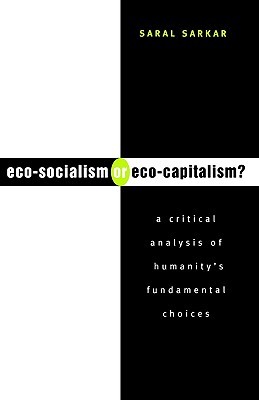
- We will send in 10–14 business days.
- Author: Saral Sarkar
- Publisher: Bloomsbury Publishing PLC
- Year: 1999
- Pages: 304
- ISBN-10: 1856496007
- ISBN-13: 9781856496001
- Format: 14.3 x 21.5 x 1.7 cm, softcover
- Language: English
- SAVE -10% with code: EXTRA
Reviews
Description
This major synoptic work is remarkable for its author's holistic treatment of the environment and social justice as inescapably related questions. He refuses to analyze the industrialized and developing countries as though they are so different that any understanding of the one can ignore the other. Saral Sarkar argues that the USSR bumped up against environmentally defined and resource-related limits to growth at a relatively early stage; but this does not mean that a free market, globalized capitalist economy will indefinitely escape a similar fate. Nor will a modified "eco-capitalism," as promoted by some sections of the Western environmental movement, provide a sufficiently grounded solution to the twin problems of environmental destruction and social injustice. The author looks, therefore, to a fundamentally different future--one in which our very notion of progress is differently conceived.
EXTRA 10 % discount with code: EXTRA
The promotion ends in 20d.03:57:16
The discount code is valid when purchasing from 10 €. Discounts do not stack.
- Author: Saral Sarkar
- Publisher: Bloomsbury Publishing PLC
- Year: 1999
- Pages: 304
- ISBN-10: 1856496007
- ISBN-13: 9781856496001
- Format: 14.3 x 21.5 x 1.7 cm, softcover
- Language: English English
This major synoptic work is remarkable for its author's holistic treatment of the environment and social justice as inescapably related questions. He refuses to analyze the industrialized and developing countries as though they are so different that any understanding of the one can ignore the other. Saral Sarkar argues that the USSR bumped up against environmentally defined and resource-related limits to growth at a relatively early stage; but this does not mean that a free market, globalized capitalist economy will indefinitely escape a similar fate. Nor will a modified "eco-capitalism," as promoted by some sections of the Western environmental movement, provide a sufficiently grounded solution to the twin problems of environmental destruction and social injustice. The author looks, therefore, to a fundamentally different future--one in which our very notion of progress is differently conceived.


Reviews